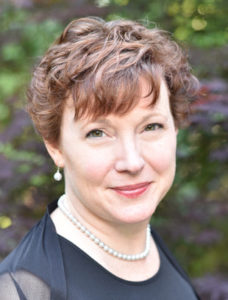 CCC Chair Beth Mynatt provided contributions to this post.
CCC Chair Beth Mynatt provided contributions to this post.
How do you successfully accomplish human-centered computing research and design? Focus on users who are not you. Figure out someone else’s computing technology barriers and try to address them. Use these insights as the force that drives your research.
Just some words of advice from Computing Community Consortium (CCC) Chair, Executive Director of Georgia Tech’s Institute for People and Technology (IPaT), College of Computing Distinguished Professor, and the Director of the Everyday Computing Lab, Beth Mynatt who was recently interviewed by her former student, Andrew Miller, for ACM’s Future of Computing Academy Computing Across Disciplines podcast.
Beth talked about her work in advancing technology in the home for older adults. These “aging in place” technologies allow older adults with decreasing cognitive and physical capabilities to have independence in their own home as much as possible. This goal led to a whole host of new research challenges affecting both the older adults and their designated caregivers.
She also mentioned her work in advocating for research and getting researchers from different disciplines to come together and collaborate. The key Beth says is to create a joint agenda and do everything you can do to support that collaboration even if those in your specific discipline are not aware of it. When you help others make a contribution to their community, it will come back and help you as well. You have to create an environment to learn about adjacent research expertise and goals. Georgia Tech’s GVU Center is known for its Brown Bag presentations on Thursdays at which researchers come in and talk about their specific work. Frequently, Beth says, collaborations are formed based on these presentations.
Finally, Beth did a nice job summarizing the beginning of the CCC. As she describes, the initial purpose of the CCC was to bond together as a computer science community and communicate to key stakeholders, such as the National Science Foundation (NSF), how to catalyze emerging research agendas. CCC activities, of course, have grown over the past ten plus years but the overarching goal of envisioning audacious research challenges has remained the same.
Throughout her career, Beth has been bringing different researchers together from academia, industry, and government. Today she leads Georgia Tech’s Institute for People and Technology to lead in the creation of human-centered systems that define much of everyday life: how people communicate, learn, heal, make decisions and take care of their communities. This interview broadly captures the work that she has done, see the CCC website for more specifics of Beth’s national involvement in visioning workshops, white-papers, and presentations to the community and others.









